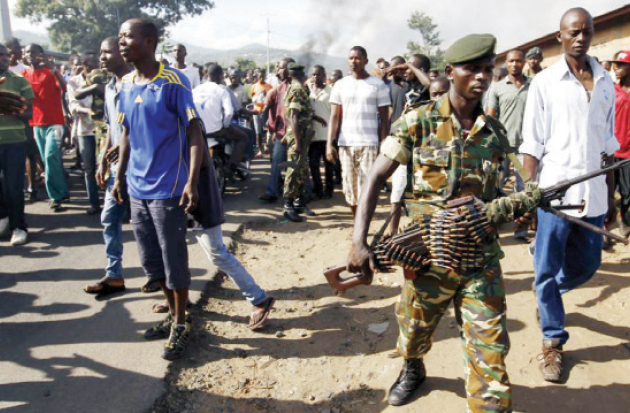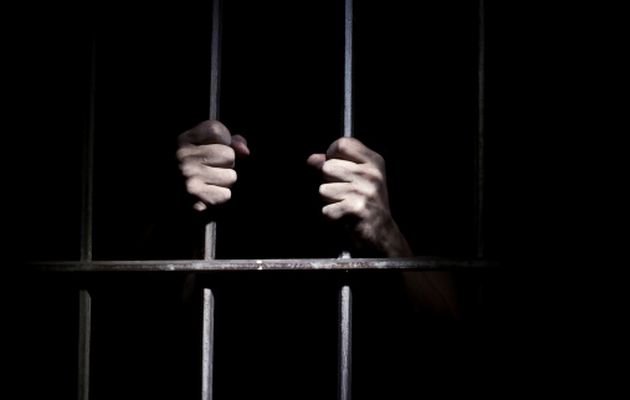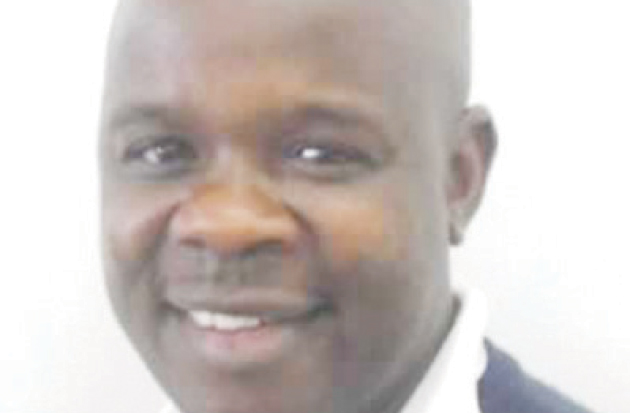East African leaders to meet over Burundi crisis


A soldier walks away from protesters in Burundi’s capital, Bujumbura, as they clash with riot police during demonstrations against the president’s decision to run for a third term, a move critics say violates the constitution. — AFP
Arusha — East African leaders are to meet on Monday in the latest bid to resolve the political crisis in Burundi, after controversial elections were internationally condemned for not being free and fair.
More than 70 people have been killed in more than two months of protests and a failed coup attempt sparked by President Pierre Nkurunziza’s defiant bid for a third term, with almost 144,000 refugees fleeing into neighbouring nations.
“Heads of state will make an assessment of the situation in the country,” said Owora Othieno, spokesman for the five-nation East African Community (EAC).
Parliamentary and local elections were held on Monday despite an appeal by UN Secretary-General Ban Ki-moon to postpone the polls after months of turmoil.
The UN electoral observer mission said in a report late on Thursday that the elections took place “in a tense political crisis, and a climate of widespread fear and intimidation”.
The meeting will be held on Monday in Tanzania’s economic capital Dar es Salaam, where two regional summits on the crisis have already been held.
During the first summit in May 13, a general staged a failed bid to unseat Nkurunziza while the president himself attended the talks.
Nkurunziza did not attend a second summit on May 31, and it was not immediatly clear if he would attend Monday’s planned meeting.
The results of the parliamentary polls have yet to be released, but former colonial power Belgium has said it will not recognise the outcome and the United States has also ratcheted up international pressure, calling for presidential elections on July 15 to be delayed.
The EAC bloc includes Burundi, as well as Kenya, Rwanda, Tanzania and Uganda.
Meanwhile, the United States called on Thursday for presidential elections in Burundi to be delayed, ratcheting up international pressure on the defiant incumbent Pierre Nkurunziza.
Monday’s polls — declared not free or credible by UN observers — kickstarted a series of elections, with presidential polls on July 15.
State Department spokesperson John Kirby urged Nkurunziza “to place the welfare of Burundi’s citizens above his own political ambitions and participate in dialogue with the opposition and civil society to identify a peaceful solution to this deepening crisis.
“This solution should include the delay of the July 15 presidential elections until conditions are in place for free, fair and peaceful elections.”
The United States was also suspending several security assistance programmes with Burundi, Kirby added, including training for the military.
“The Burundian government’s decision to push forward with the June 29 parliamentary elections despite the complete absence of the necessary conditions for credible elections and widespread calls, including from the African Union and United Nations, to delay the voting further exacerbated an already dire situation,” Kirby said. — AFP










Comments